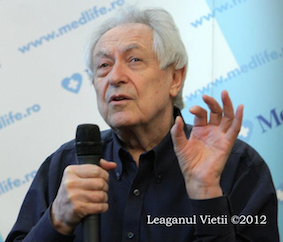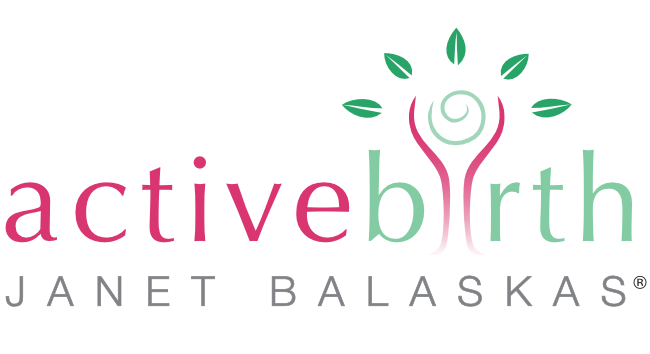
I agree with Dr Odent completely that current induction policies are having a devastating effect on women’s ability to give birth normally and consequently to breastfeed. Even women very much want to give birth naturally, such as those who come to the Active Birth Centre, are set a deadline of 41.5 weeks to go into labour.
The normal length of pregnancy may fall between 38 and 42 weeks—even a week either side of that may also be ‘normal’ for some mothers and babies. There many variables which can make it impossible to know exactly when a pregnancy began and how long it will last.
These days as women approach 40 weeks, sometimes even earlier at 39 weeks, the topic of induction is raised and they maybe asked to book an appointment to be induced ‘just in case’.
They become anxious about starting labour and that is already an interference in the natural hormonal status of a woman in late pregnancy – a time when her oxytocin levels should be beginning to rise. (Oxytocin is the main hormone of the birth process that makes the uterus contract and promotes bonding and attachment.) Anxiety and fear about going into labour trigger the adrenalin-type stress hormones that inhibit the production of natural oxytocin: the cycle of interference in a woman’s ability to give birth begins before she is even in labour.
In other words the anxiety about going into labour ‘on time’ actually delays the spontaneous onset of labour.
Mothers are afraid they will somehow harm their babies if they don’t comply with an induction. Sometimes they are told they will be putting their babies at risk—for most women this is not true. They often come to me upset and in a dilemma about what to do. I remind them of their options and rights, and they frequently look for a second obstetric opinion, or to try to induce labour more gently without chemicals in our therapy clinic using acupuncture or reflexology – (with a considerable measure of success, I would add).
However many mothers feel vulnerable in late pregnancy, are reluctant to act against professional advice and understandably succumb to an induction.
This very often leads to a cascade of other interventions which may not have been needed otherwise. So a potentially natural, joyous birth usually then becomes a chemical induction of labour requiring pain relieving drugs and greater risk of an instrumental or surgical birth. This in turn can disturb the hormonal balance after birth and lead to difficulty in initiating breastfeeding.
Hence the reality that one quarter of British babies are born by CS – when the World Health Organisation claims that the CS rate should be around 10%. I believe the current induction policies play a causal role in high Caesarean rates.
 I congratulate Dr. Odent for highlighting this topic. What we should be doing with our healthy pregnant mothers in late pregnancy is fostering calm, confidence, relaxation and happiness, discreetly making sure that mother and baby are doing well through regular check ups, while waiting for labour to start spontaneously.
I congratulate Dr. Odent for highlighting this topic. What we should be doing with our healthy pregnant mothers in late pregnancy is fostering calm, confidence, relaxation and happiness, discreetly making sure that mother and baby are doing well through regular check ups, while waiting for labour to start spontaneously.
Another advantage of waiting for labour to start is that there is a surge in the hormone oestrogen at the end of pregnancy which prepares the uterus to function efficiently by increasing the number of oxytocin receptors in the muscle tissue.If labour is induced before this rise in oestrogen occurs, i.e. before the mother is ready to go into labour, of course there will be fewer oxytocin receptors – so reduced contractibility of the uterus – as oxytocin is the hormone that stimulates contraction of the muscle fibres. One reason why, perhaps, Odent quotes the finding that labours are lasting 2.5 hours longer on average than they used to.
I always tell mothers, when we are sure there are no medical indications to induce – “don’t look for labour – wait for labour to come to you.”
Induction is an intervention that should only be considered where there are clear medical indications. Syntocinon, the ‘oxytocic ‘ drug used in the UK to induce labour is a poor and crude substitute for natural oxytocin the mother produces herself. While syntocinon will make muscle cells contract, it does not have any of the amazing properties of natural oxytocin that wash away pain, and foster love, calm and attachment.
Michel also spoke about fathers during birth. He believes that fathers should be absent from the birthing room, but I would hesitate to generalise. It may be better for a father who is anxious not to be present – since anxiety is contagious – but a father who has prepared for the experience and is calm and relaxed himself, such as those who attend our courses, can be an invaluable help to his partner emotionally and physically, protecting her from disturbance.
Oxytocin is also called the ‘love hormone’ – the hormone of closeness – increased levels occur naturally when a couple are deeply connected during a labour. This contributes to ‘bonding’ as the new family is forming during and immediately after birth.
Some couples deeply enjoy sharing the experience of birthing their babies and would not have it any other way. So I would not want to introduce any policies that might, once again, interfere with the woman’s right to choose how and with whom she gives birth.
To banish all fathers or partners from the birthing room is a step back into the dark ages, so I hope it never happens. We should make individual decisions, depending on the circumstances, rather than go too far in the other direction and expect all fathers or partners to be there regardless. We can thank Michel Odent for opening the discussion, but at the end of the day it’s a woman’s choice – there will be some women who prefer not to have their partner present and others who want him or her to be there above all others.
I would say to mothers – your body knows how to give birth, your baby knows how and when to be born – trust your instincts and prepare well – body and mind – and then make an informed choice about everything – especially induction.
 You can order copies of Dr Michel Odent’s Book ‘Do We Need Midwives’ through the Pinter and Martin website for £8.99.
You can order copies of Dr Michel Odent’s Book ‘Do We Need Midwives’ through the Pinter and Martin website for £8.99.


A very positive response and I fully support both Michel Odent and Janet Balaskas’ articles.
Both yoga and Bowen therapy prepare women for a healthy confident pregnancy and labour.
Hi might I ask your opinion about inducing birth in case of fee days that water broke?
Here is a great article regarding Michel Odent’s new book.
At the workshop I attended (May 12, 2015, in Sydney) Michel Odent was asked about his Father comment. He was not absolute about it, he said that fathers should not HAVE to be there, that some men are better able to serve their partner and child if they are not present at the birth.
In regards to the presence of the father at the birth, it is the man’s choice as well. He and his partner should be able to have an open discussion about his involvement at the birth. She absolutely can say no to him, even if he wants to be there. But she can not insist he is there if he is not comfortable. It is about having options. It is about understanding individuals.
Thank you Janet Balaskas and Dr Odent for enlightening us all.
At last, clear high profile feedback about the meanness of NHS guidelines about induction dates and of the so-called “system” of booking perfectly healthy pregnant women and babies for induction as a matter of course.
So many anxious pregnant women around the EDD (or even a few weeks before!) come to me at the ACTIVE BIRTH CENTRE THERAPY CLINIC for reflexology asking for “natural induction”-which of course is impossible let alone unethical-such is the terror of hospital induction!
The way of Nature is to allow the birth to happen when it will. The state of calmness and harmony and hormonal balance reflexology promotes most effectively only encourages the way of Mother Nature. No forcing, ever.
An article and a blog whose time has come: a wake up call to promote positive change.